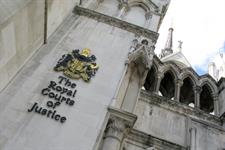A High Court judgment on the more than £1m will of an ex-racing driver has provided additional clarity on the interpretation of legacy gifts to mis-described charities, lawyers have said.
Barrie Williams died on 8 September 2018, leaving an estate worth £1.2m.
The retired professional racing driver, who was a long-standing member of the British Racing Drivers’ Club, left three properties, several cars worth about £120,000, and investments worth more than £300,000.
After the estate was divided between the immediate family he had instructed what was left to be shared between organisations including the British Racing Drivers Club Benevolent Fund and the Cancer Research Fund.
But issues arose because there are no charities with those names, leaving the executor of the will unable to proceed with its administration.
The High Court ruling says the first gift was most likely intended for the British Racing Drivers’ Motor Sport Charity, an organisation with which the former racing driver had a long-standing affiliation.
But the court took a different approach to the Cancer Research Fund and, after taking into account evidence from the executor, concluded that the legacy was to be applied for the general charitable purpose of cancer research.
In his decision, Justice Paul Matthews said: “Even if I were wrong, and it were intended to refer to a particular institution, on this material it is clear that the identity of the particular institution would not be critical to the gift.
“Given the existence of other charitable elements in the will, there would be no difficulty in discerning a general charitable intent in this case.”
The ruling did not specify which charities should receive the funds for cancer research.
Daniel Harris, a partner and head of the charity legacy team at the law firm Stone King, said: “Difficulty identifying the intended charity beneficiary is a far more common issue than you would imagine, so the additional guidance that has been provided by the court provides legal practitioners with better tools with which to be able to craft a just and equitable solution.”
Lucinda Brown, partner and head of will and trust disputes at BDB Pitmans, said the decision demonstrated the courts’ willingness to save charitable gifts where possible and should be welcomed.
She advised will-makers to use simple language and consider a fallback bequest.
Shivaji Shiva, a partner at the law firm VWV, said he thought charities should provide clear guidance on this issue.
“Ensuring your will is correctly drafted will save your executors the time, trouble and expense of seeking the court’s intervention,” he said.
“Similarly, where charities invite supporters to support them with legacies, they should provide clear guidance on how the charity should be described.”
